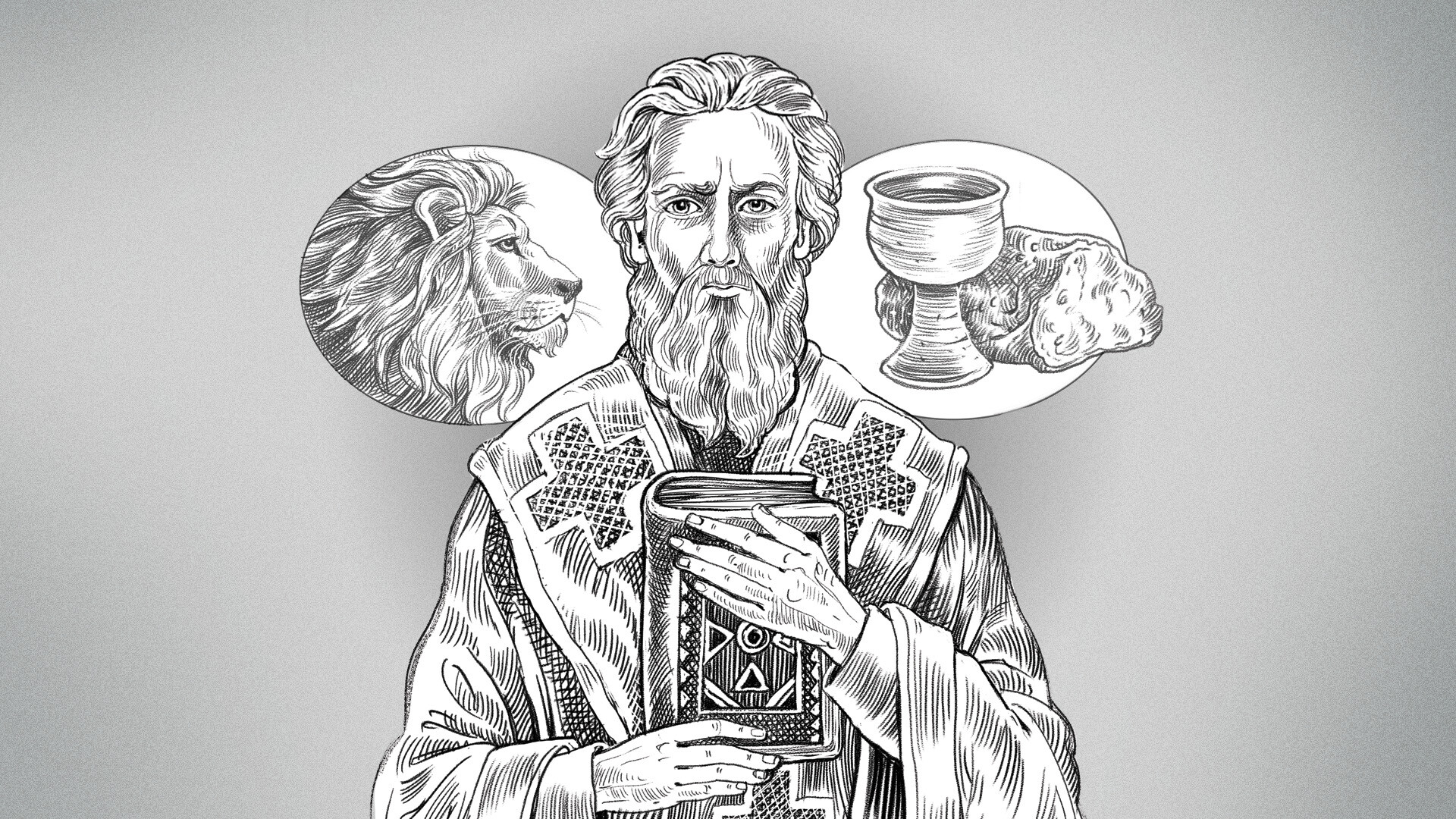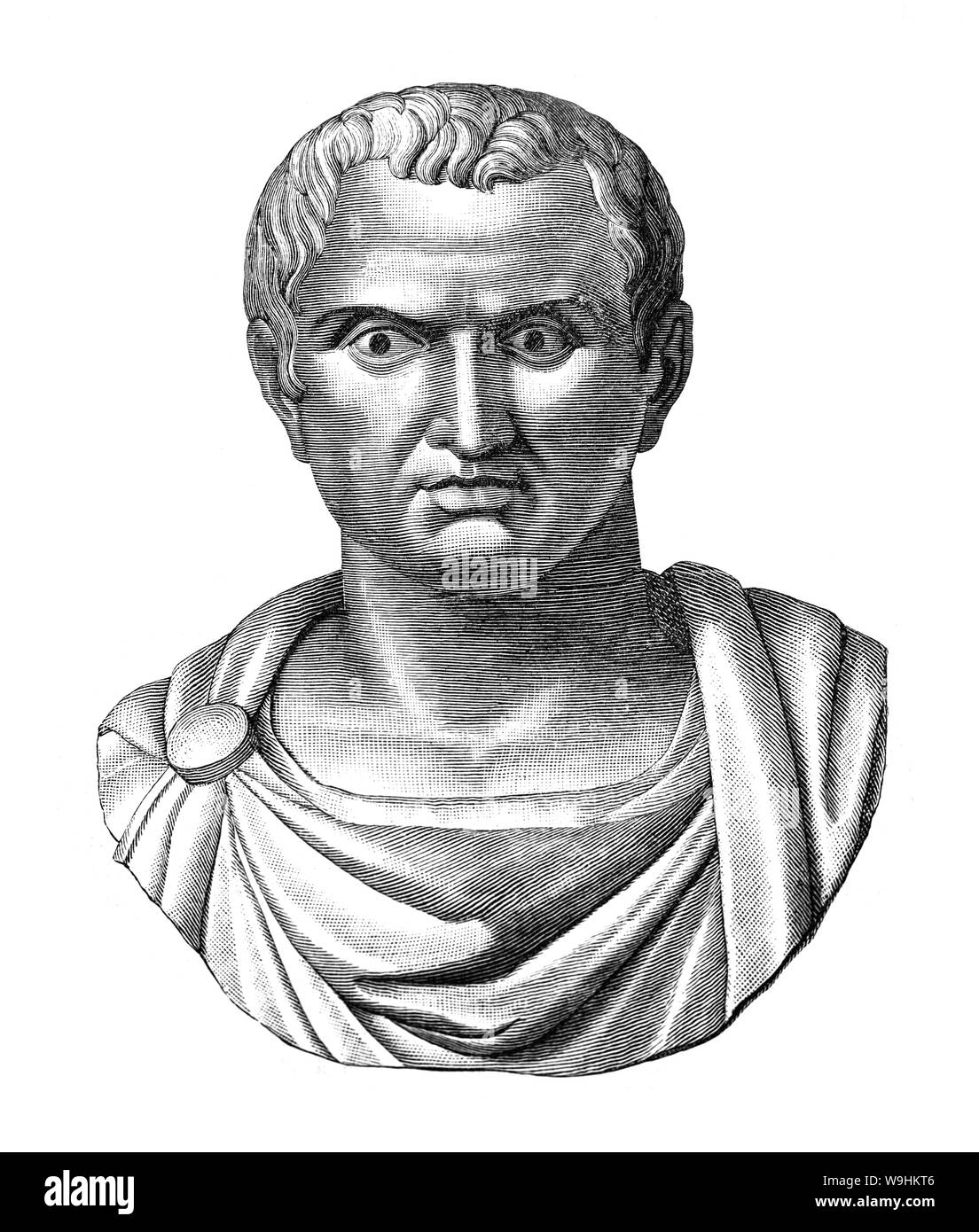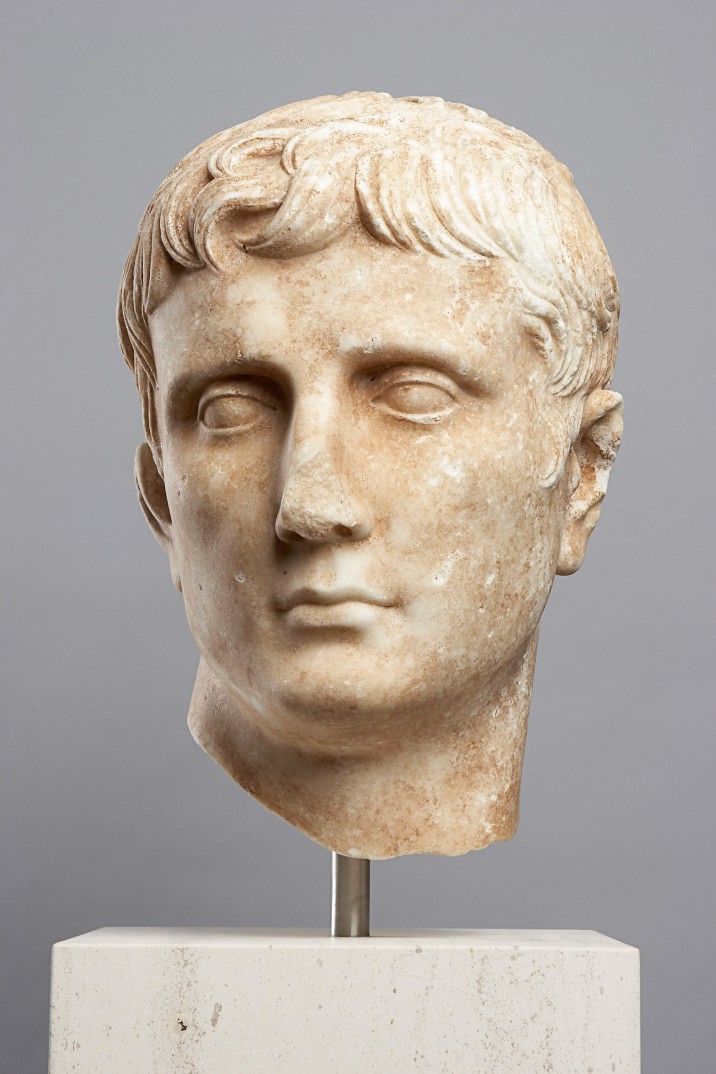Saint Ignatius of Antioch: A Beacon of Early Christianity
The early days of Christianity were marked by fervent missionary activities, theological debates, and, unfortunately, persecution. Among the figures caught in this tumultuous period was Saint Ignatius of Antioch, whose life and works continue to resonate in Christian teachings. As one of the Apostolic Fathers, his influence and legacy have been instrumental in shaping early Christian doctrines and ecclesial structure.
The Early Life of Ignatius
Though much of Ignatius' early life remains shrouded in mystery, tradition places his birth towards the end of the 1st century. He is often associated with a well-educated family, possibly of Greek or Roman descent. Ignatius became the Bishop of Antioch, a major center of early Christianity, following the apostolic era, and would serve in this capacity for several decades.
Antioch was one of the principal cities of the Roman Empire, widely recognized for its commercial vibrancy, cultural diversity, and religious significance. It was here that the followers of Jesus were first called "Christians," marking it as a seminal location in the origins of Christianity. Ignatius, through his bishopric, played a pivotal role in grounding the Christian faith in a region characterized by a mélange of syncretic beliefs.
Defender of the Faith
Ignatius lived during a period of intense persecution under Emperor Trajan. The Roman authorities viewed the burgeoning Christian faith with suspicion and hostility, often regarding it as a threat to the traditional pagan order. Ignatius was resolute in his belief and devoted his life to defending the faith, rejecting any attempts to discredit the nascent Christian community.
His writings reveal a fervent desire to maintain the purity of doctrine and ecclesiastical unity. Ignatius was particularly concerned with confronting heretical teachings that were emerging in various regions. His letters highlight his unyielding commitment to orthodoxy and his fierce opposition to Gnostic beliefs which were gaining traction among certain circles of believers.
The Journey to Rome
The narrative of Ignatius' life takes a dramatic turn when he was arrested by Roman authorities. Fraught with tales of courage and devotion, his eventual martyrdom is one of the prominent narratives in early Christianity that underscores the resilience and dedication of its leaders. Ignatius was transported under Roman guard to Rome, where he would eventually face martyrdom in the Colosseum.
Throughout his journey from Antioch to Rome, Ignatius penned several epistles to various Christian communities, including those in Ephesus, Magnesia, and Smyrna, among others. These letters are of immense historical importance; they not only provide insight into the challenges faced by early Christians but also offer a window into Ignatius' theological and spiritual contemplations.
In his letters, Ignatius expressed a profound desire for martyrdom. He implored his fellow Christians not to impede his impending execution, viewing it as an opportunity to emulate Christ's suffering and a final testament of his faith. Ignatius' writings from this period reveal a deep admiration for the life of Christ and serve as an exhortation to believers to uphold the faith, even at great personal cost.
Theological Contributions
The letters of Ignatius are among the earliest substantial theological works postdating the New Testament. They offer a glimpse into the doctrinal struggles and organizational developments within the early Church. Ignatius espoused the importance of ecclesiastical hierarchy and the primacy of the episcopal office in maintaining doctrinal integrity and unity.
His writings displayed a clear perspective on the structure of the Church, advocating for a model where bishops, presbyters, and deacons maintain distinctive roles. By emphasizing the role of the bishop as a unifying figure within the Church, Ignatius laid the groundwork for later theological developments concerning ecclesial authority and governance.
Additionally, Ignatius was an ardent proponent of the Eucharist, referring to it as the "medicine of immortality," a sacrament central to the Christian faith. His letters repeatedly highlight the significance of the sacraments as tangible means of grace, pivotal for sustaining the community in faith and unity.
Ignatius of Antioch remains a towering figure in early Christian history. His life, writings, and eventual martyrdom offer a profound testament to the trials and tribulations faced by those who sought to establish and nurture the Christian faith amidst a hostile environment. As Christianity evolved, the legacy of figures like Ignatius served as a foundation for subsequent theological development and ecclesiastical polity.
In the subsequent sections, we will delve deeper into the enduring impact of Ignatius' teachings and how his life continues to inspire modern Christian thought and practice.
The Enduring Legacy of Ignatius' Letters
The seven epistles penned by Ignatius of Antioch during his journey to martyrdom hold immense significance in early Christian literature. They serve as a vital link between the apostolic teachings and the evolving doctrines of the early church. These letters not only provide a theological framework for emerging Christian communities but they also reinforce the importance of unity, love, and resilience under persecution, elements that became bedrocks of Christian identity.
Among the themes that permeate Ignatius' writings is a profound affirmation of Jesus Christ's divinity and humanity. In a context where divergent interpretations of Christ's nature were burgeoning, particularly from Gnostic perspectives, Ignatius consistently stressed the significance of Christ's incarnation and physical reality. This emphasis served as a bulwark against docetism, a belief that Christ's physical body was an illusion, and helped clarify the church's stance on the nature of Christ, which would later be articulated more formally by the Nicene Creed.
Ignatius also addressed ecclesiastical unity with equal fervor. His advocacy for a cohesive and structured church organization was primarily a response to the schisms and heresies threatening to fracture early Christian communities. By underscoring the authority of the bishop, Ignatius reinforced the belief that unity in doctrine and practice was vital for the survival and growth of the church. This emphasis on hierarchical structure paved the way for the development of canon law and ecclesial polity that became hallmarks of later Christian tradition.
Impact on Early Christian Doctrine and Practice
Ignatius’ influence on early Christian doctrine extends beyond ecclesiastical organization, equally impacting liturgical practices and sacramental theology. His unwavering support for the Eucharist as essential to the life of the church highlighted a burgeoning understanding of sacraments as not merely symbolic, but as efficacious means of divine grace. This perspective contributed significantly to shaping the sacramental theology that becomes central in both Western and Eastern Christian traditions.
Furthermore, his writings offer insight into the liturgical life of early Christians, indicating practices that echo in present-day worship. His reference to frequent assemblies and communal meals reflects Judaism's deep influence on early Christian worship while also pointing to the development of rituals distinctively Christian in character.
Ignatius' reflections on martyrdom also exerted a profound influence on the spiritual imagination of Christianity. The manner in which he embraced his fate with resolve and joy emboldened early Christians facing persecution and inspired later saints and theologians who saw martyrdom as the ultimate witness to their faith. His writings conveyed a theology of suffering that valued endurance and witness as paths to divine union, shaping a paradigm that sustained persecuted Christian communities through subsequent centuries.
Cultural and Historical Context
To comprehend the full scope of Ignatius' contributions, it's essential to understand the cultural and historical landscape of the Roman Empire during his life. In this era, the expansion of Christianity was perceived as both a cultural and political challenge to the Roman way of life. The imperial cult, which venerated the emperor as a deity, stood in stark contrast to Christian monotheism and refusal to deify humans or idols. This tension was a significant factor in the persecutions that Christians, including Ignatius, faced.
Antioch, the city where Ignatius served as bishop, was a microcosm of this cultural tension. It was a cosmopolitan center, home to a mix of religions and cultures within the empire. This diversity, while enriching, also posed unique challenges for the Christian community trying to delineate its beliefs and practices from other religious traditions. Ignatius’ emphasis on unity and orthodoxy was not only a theological stance but also a strategic response to the diversity and potential divisiveness of his contemporaneous religious landscape.
Continued Relevance Through the Ages
Ignatius' insights and exhortations have continued to find resonance through the ages, contributing to the enduring relevance of his life and teachings. In the centuries following his death, his articulation of church unity and episcopal governance became integral to the development of ecclesial identity, especially as Christianity spread across diverse cultures and faced new theological challenges. The use of Ignatius' writings during early ecumenical councils underscores the enduring significance of his thoughts in affirming the church's orthodoxy.
In contemporary times, Ignatius remains a figure of inspiration, particularly for those who value the themes of unity and perseverance in faith. His writings are often cited in dialogues concerning church unity, the relationship between different Christian traditions, and the interplay between tradition and innovation in theological thinking.
His legacy also speaks today to those who face persecution for their beliefs; his fortitude and courage under immense pressure offer a timeless testament to the power of faith in adversity. As Christianity continues its global journey, the life and works of Ignatius serve as both a historical anchor and a forward-looking call for resilience, unity, and fervent dedication to foundational beliefs.
As we navigate through modern challenges, the figures from our past like Ignatius remind us of the transformative power of faith and conviction that transcends time and cultural shifts. The next part of this article will explore how Ignatius’ teachings continue to inform and inspire new generations within the Christian tradition and beyond.
Ignatius' Influence on Modern Christianity
In the contemporary landscape of Christianity, the legacy of Saint Ignatius of Antioch continues to find new expressions and relevance. As churches across denominations grapple with questions of identity, authority, and unity, Ignatius' early insights into ecclesiastical organization and doctrinal integrity offer a framework that resonates even today. His emphasis on the episcopal office as a focal point of unity serves as a touchstone for many Christian communities navigating divisive theological and cultural issues.
The ecumenical movement, which seeks to promote unity among Christian churches, frequently draws upon the pastoral wisdom expressed in Ignatius' letters. His insistence on the church as a single, unified body underlines contemporary efforts to bridge doctrinal divides and foster interdenominational dialogue. In particular, his writings remind modern Christians of the importance of community cohesion and the pastoral care of a unified leadership in nurturing faith amidst diversity.
Equally, in academic settings, Ignatius' contributions to early Christian theology and ecclesial formation continue to be a focal point of theological inquiry and discourse. Scholars analyze his works not only for their historical and theological content but also as vital resources that illuminate the development of Christian thought and practice across centuries. This scholarly attention ensures that Ignatius remains a vibrant part of ongoing theological conversations about the nature of the church, the sacraments, and the role of suffering within the Christian narrative.
Martyrology and the Cult of the Saints
The martyrdom of Ignatius and his character as a steadfast believer have earned him a place within the cult of the saints, a tradition that venerates those who have lived lives of exemplary faith. For many adherents, particularly within Roman Catholic, Eastern Orthodox, and some Anglican traditions, Ignatius is celebrated on his feast day, which serves as both a commemoration of his sacrifice and a reminder of the enduring power of faith.
His writings are often incorporated into liturgical readings and reflections, presenting Ignatius not only as a historical figure but as a spiritual guide whose insights can inform contemporary devotional practices. The veneration of saints like Ignatius underscores a broader Christian tradition that values the intercession of holy figures, who serve as models of virtue and fidelity to divine will.
Furthermore, Ignatius' martyrdom narrative becomes a teaching tool that emphasizes the cost of discipleship and the transformative power of grace in the face of suffering. His willingness to embrace martyrdom reflects a profound theological conviction in the reality of eternal life—a conviction that continues to inspire those who face similar challenges in bearing witness to their faith.
Ignatius in Interfaith and Cross-Cultural Dialogues
Beyond the context of Christianity, Ignatius’ life and writings have relevance for broader interfaith and cross-cultural dialogues. His emphasis on dialogue, respect for tradition, and discernment amidst theological diversity are principles that can transcend religious boundaries, offering wisdom applicable to a diverse world grappling with issues of identity, difference, and coexistence.
In many ways, Ignatius serves as a model for constructive engagement across religious and cultural divides. His approach to conflict and disagreement within early Christianity—marked by a balance of theological clarity and pastoral sensitivity—offers valuable insights into modern interfaith interactions. As religious communities worldwide seek common ground and mutual understanding, the figure of Ignatius stands as a testament to the power of dialogue rooted in mutual respect and shared commitments to human dignity and peace.
Furthermore, his writings, with their emphasis on unity and love, resonate with universal values that transcend specific religious doctrines, making his contributions relevant to wider conversations about human coexistence in a pluralistic society. His insights remind us that amidst diversity, there is strength in coming together while respecting individuality and difference.
Conclusion: The Timeless Relevance of Ignatius' Teachings
Saint Ignatius of Antioch, through his life and writings, offers a compelling vision of faith that engages deeply with the challenges and opportunities of both his time and ours. His unwavering commitment to unity, doctrinal integrity, and the spiritual depth of Christian practice provides a timeless example of leadership marked by conviction and courage. His legacy underscores the profound impact of committed individuals in the course of religious history—individuals who are able to articulate a vision for the future that draws upon the strengths of the past.
As we reflect on Ignatius' enduring legacy, both scholars and lay individuals are reminded of the transformative potential inherent within faith communities that prioritize unity in diversity, dialogue over discord, and enduring commitment over fleeting convenience. His teachings offer a profound reminder that the journey of faith, while fraught with challenges, is also a path rich with personal and communal growth—a path as relevant today as it was two millennia ago.
Ignatius of Antioch remains a beacon for those seeking to navigate the complexities of faith amidst a rapidly changing world. His life and letters continue to inspire generations, challenging believers to live with authenticity, to pursue unity with passion, and to face adversities with unwavering hope.






















Comments